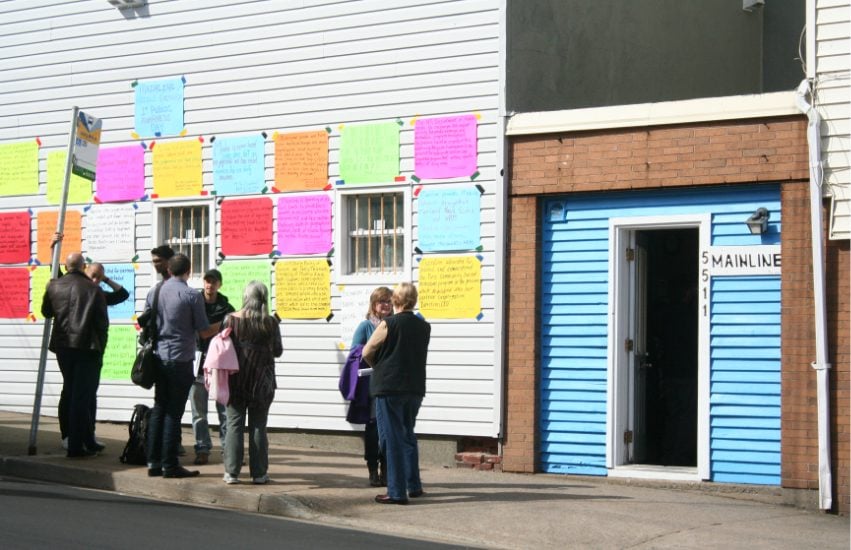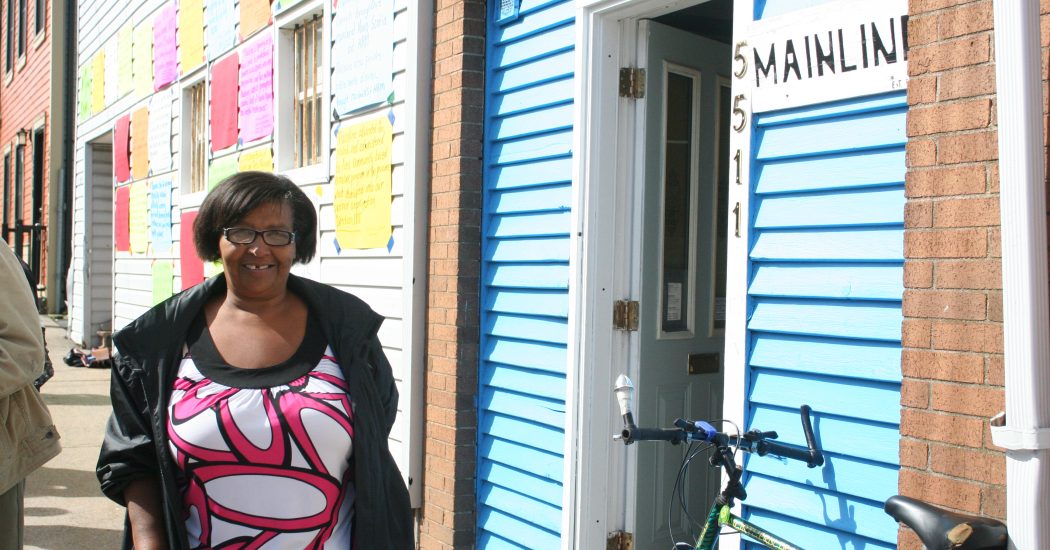KJIPUKTUK (Halifax) – An organization that supports people who live with addictions anywhere on mainland Nova Scotia is feeling a budget crunch.

For almost 25 years now the support workers at Mainline Needle Exchange have been working tirelessly to make the difficult lives of drug users a little bit easier.
The organization offers clean syringes, glass stems, sterile water and other supplies to prevent the spread of Hepatitis C and HIV AIDS.
“I will tell you, Mainline saves lives, just through the needle exchange.”
Mainline workers also hook people up with Community Services and with health care services and advocate for them. They offer legal support, and do healthcare outreach in partnership with the Mobile Outreach Street Health (MOSH) team.
They do all this not just in Halifax. The Mainline Needle Exchange van visits communities all across HRM and mainland Nova Scotia.
The organization held an open house in its building on Cornwallis Street in Halifax’ North End last Friday to let people know about the important work they do.
“Mainline saves lives”

“I will tell you, Mainline saves lives, just through the needle exchange. A lot of people know how important it is not to share their tools.” says Elaine Williams, a legal support worker with the organization.
“People who have addictions, it is really important for them to know that there are people who stand by them and help them through this bad time in their lives,” Williams adds. “There’s a lot of people trying to get clean, and without Mainline and (methadone clinic) Direction 180 our city would be in much worse shape.”
Services cut in face of budget crunch
Mainline may save lives, but the provincial government has been stingy in supporting the organization.
In September Mainline director Diane Bailey told CBC Nova Scotia’s Elizabeth Chiu that her organization needs an extra $220,000 to maintain current services and meet growing demands. Yet Bailey isn’t sure whether the Nova Scotia Health Authority is listening.
“We definitely feel the funding crunch. We still haven’t heard back from the Department of Health and Wellness and the Nova Scotia Health Authority,” says Natasha Toueshard, an outreach worker with Mainline Needles Exchange.
“That means we had to cut back on our outreach services.We used to visit communities once every two weeks, and now it is down to once a month. For Yarmouth it is actually down to once every two months.” Toueshard says.
“This can be fatal really. When people are limited for clean supplies they become vulnerable to HIV and Hepatitis C, and it ends up costing the government much more money. It is way more cost effective to deal with the issues on the front line,” she says.
“Disappointing and frustrating”
“It’s disappointing and frustrating. We don’t know why we have to fight so hard,” says Toueshard. “We deal with hundreds of people every day. And we are facing a higher demand, meeting new clients all the time, but we are unable to provide the services that they need, or even give them the clean supplies that they need.”
“People who use drugs are somebody’s daughter, they’re somebody’s son, they all have loved ones, and people that love them, and they all matter.”
“People have a stereotype in their minds of what drug addicts look like. But in actual fact it affects all. At Mainline we pride ourselves on having staff who are in recovery. Our director (Diane Bailey) has been in recovery for 26 years, and started this program at the grassroots. I have been in recovery since 2009.”
“It just goes to show that if you give people the tools to move forward and make healthy decisions for themselves,” says Toueshard. “They empower themselves and do great things.”
It’s very simple, really, says Toueshard. “People who use drugs are somebody’s daughter, they’re somebody’s son, they all have loved ones, and people that love them, and they all matter. They are Nova Scotia citizens, and they deserve to be taken care of just like anybody else.”
Like Mainline Needle Exchange on Facebook.
Read this in-depth program evaluation of Mainline Needle Exchange for further details, stats etc.




The backwardness of the Nova Scotian government, on this matter, is extremely disheartening. The commitment to budget austerity, at the cost of avoidable social damage and individual illness and death, is a scandal.